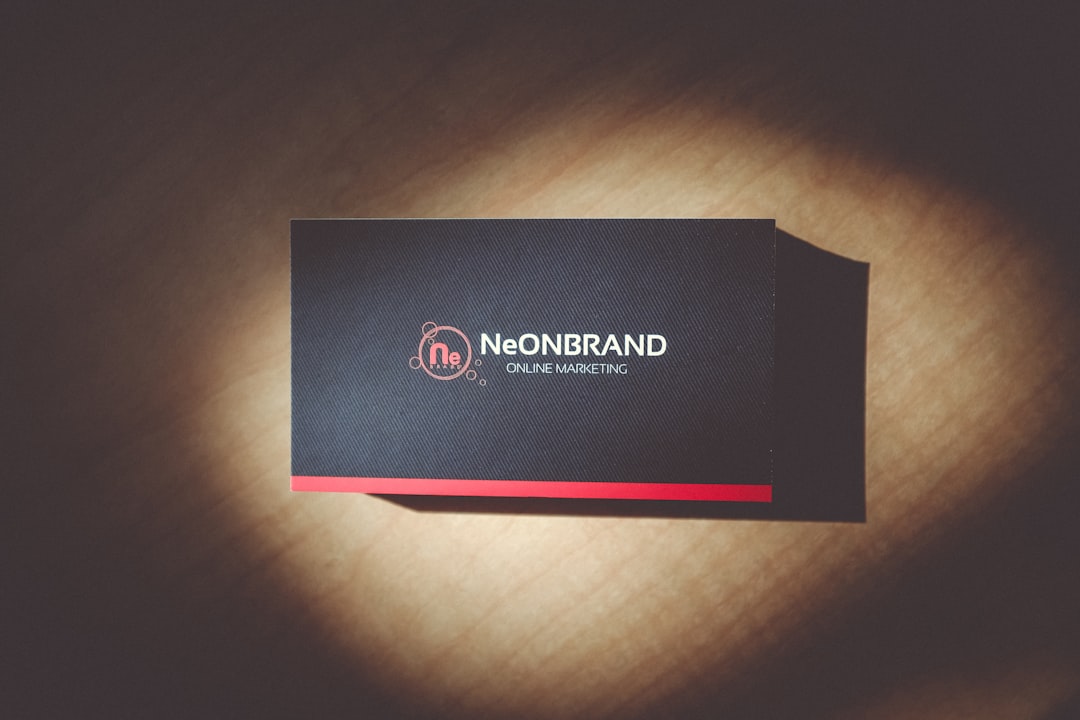Building professional relationships is an essential component of career success in any field. The ability to connect with others, create lasting bonds, and leverage these connections can help you succeed in your career, regardless of your industry or profession.
Networking is often viewed as a necessary but unpleasant task, but it doesn’t have to be. It’s all about building relationships based on mutual trust, respect, and a desire to create value for one another. A strong professional network can provide access to new opportunities, connections, and information that can help you grow and develop your career.
In this blog post, we’ll discuss the art of building professional relationships, starting with the critical first step: making meaningful connections through first impressions. We’ll explore strategies for creating lasting impressions, leveraging social media to expand your network, nurturing and sustaining relationships through follow-up, and the importance of maintaining ethics in networking. Finally, we’ll offer some tips for mastering the art of networking to help you achieve your career goals.
So, let’s dive in and explore the different steps involved in building professional relationships that can take your career to the next level!
First Impressions Matter: The Art of Making Meaningful Connections
Networking is not only about exchanging business cards or connecting on LinkedIn. It’s about making a long-lasting impression on someone that can open doors to endless opportunities. And, the first impression you make can either make or break the potential of a relationship.
Why are first impressions so important? According to a study published in the journal Social Psychological and Personality Science, it takes only one-tenth of a second for someone to make an impression of you. And, as much as 80% of the time, that impression sticks.
So, what can you do to make a positive first impression? Here are some strategies that can help you make the most of your first meeting:
1. Dress to impress: Your appearance plays a significant role in how people perceive you. Dress appropriately for the occasion, whether it’s a formal business meeting or a casual networking event. Ensure that you’re well-groomed, and your outfit is clean, ironed, and fits you well.
2. Practice confident body language: Your nonverbal behavior is essential when it comes to first impressions. Maintain eye contact, smile, and have a firm handshake. Avoid fidgeting, crossing your arms, or slouching, as it can convey insecurity or disinterest.
3. Be prepared with an elevator pitch: An elevator pitch is a brief, persuasive speech that you can use to spark interest in what you do. Craft your elevator pitch in a way that highlights your unique strengths and the value you bring to others.
4. Show genuine interest: People appreciate when others are genuinely interested in their work or aspirations. Ask thoughtful questions about the other person, listen attentively, and respond with empathy.
5. Leave a memorable follow-up: After your initial meeting, send a personalized follow-up email or note that highlights something that you enjoyed or learned from the conversation. This simple gesture can make all the difference in creating a lasting impression.
Networking is an art that requires time, effort, and practice. By mastering the art of making meaningful connections and leaving an impactful first impression, you can open yourself up to endless possibilities for professional growth and personal development.
Dress to impress: Your appearance plays a significant role in how people perceive you.
Make Yourself Memorable: Strategies for Creating Lasting Impressions
In the previous section, we talked about the importance of first impressions when it comes to building professional relationships. But what happens after the initial meeting? How can you make sure that you leave a lasting impression on the people you meet? This is where the art of making yourself memorable comes into play.
One of the best ways to make yourself memorable is to be authentic. People are naturally drawn to individuals who are genuine and true to themselves. Don’t try to be someone you’re not just to impress someone else. Instead, be confident in who you are and let that shine through in your interactions with others.
Another effective strategy is to be a good listener. When you meet someone new, take the time to really listen to what they have to say. Ask them questions about themselves and show a genuine interest in what they have to say. This will not only help you build rapport with them, but it will also demonstrate that you are a thoughtful and considerate person.
It’s also important to be memorable in a positive way. This means being gracious, appreciative, and respectful of the time and energy that others have invested in you. Don’t be afraid to show your gratitude by sending a follow-up email or handwritten note thanking them for their time and reiterating your interest in staying in touch.
Finally, don’t overlook the power of personal branding. A strong personal brand can help you stand out from the crowd and make a lasting impression on those you meet. Take the time to craft a clear and concise elevator pitch that highlights your unique strengths and talents.
By using these strategies, you can make yourself memorable in a positive way and create lasting impressions that will help you build strong and meaningful professional relationships.
When you meet someone new, take the time to really listen to what they have to say.
Leverage Social Media: Tips for Networking in the Digital Age
In today’s digital age, social media has become a powerful tool for building and nurturing professional relationships. With millions of people using various social media platforms on a daily basis, the potential for networking has never been greater.
To leverage social media for networking, start by choosing the platforms that are most relevant to your industry or profession. For example, if you are in the creative field, platforms such as Instagram and Pinterest may be more effective for showcasing your work and connecting with potential clients than LinkedIn.
Once you have chosen your platforms, make sure to complete your profile fully and keep it up-to-date. This includes adding a professional bio, profile picture, and relevant contact information.
Posting relevant and valuable content is also key to leveraging social media for networking. Share industry insights, news, and personal experiences that showcase your expertise and interests. This helps to establish your online presence and can attract potential connections.
Engage with others on social media by commenting on their posts, sharing their content, and reaching out to them directly. But be sure to focus on building genuine, meaningful connections rather than simply adding as many contacts as possible.
In addition to engaging with others, you can also participate in industry-related groups and discussions on social media. This allows you to connect with like-minded professionals and gain insights and knowledge about your industry.
Finally, use social media to stay in touch with your existing professional contacts. Congratulate them on career milestones, acknowledge their achievements, and offer support when needed. Building and nurturing these relationships over time can lead to new opportunities and partnerships.
Remember, social media is just one tool for networking in the digital age. But with thoughtful strategy and intentional connection-building, it can be a valuable asset in building and nurturing professional relationships.
Share industry insights, news, and personal experiences that showcase your expertise and interests.
Follow-up: How to Nurture and Sustain Professional Relationships
Building professional relationships is not just about making connections and remembering names; it’s about strengthening those connections over time. Once you’ve made a meaningful impression on someone, the next step is to follow up and nurture the relationship to ensure that it grows and becomes mutually beneficial. Here are some strategies for effective follow-up:
1. Stay in touch consistently: Don’t let the relationship become stale. Try to reach out regularly through email, phone, or social media. Make sure it’s appropriate and relevant to the relationship.
2. Be genuine in your communication: People can easily sense genuineness. Don’t send canned messages or use a script. Personalize your communication as much as possible and be authentic in your interactions.
3. Remind them of the connection: Start the follow-up message by reminding the person where you met or how you connected. It’s an excellent way to jog their memory and get the conversation flowing.
4. Offer value: Bring something to the table during the follow-up. Provide some valuable insights, offer to introduce them to someone who may be mutually beneficial to their business, or suggest meeting for coffee.
5. Be Respectful of Their Time: Don’t go overboard with follow-ups. Be patient and wait for the right opportunity to reconnect. Respect boundaries and honor their time.
The goal of follow-up is to create a positive and lasting relationship. By nurturing these connections over time, you can grow your network, gain valuable referrals, and create mutually beneficial opportunities that can help propel your professional career forward. Remember, networking is not a one-time event, but a continuous process of building and nurturing professional relationships.
Personalize your communication as much as possible and be authentic in your interactions.
Keep it Real: Ethics in Networking
Networking can be a powerful tool for professionals to build relationships, grow their careers, and access new opportunities. However, it is important to remember that networking is not just about making connections, but also about maintaining them through meaningful and ethical interactions.
First and foremost, it is important to be genuine and authentic when networking. Do not try to manipulate or deceive others to get what you want. Be honest about your intentions and treat others with respect and courtesy. Networking is built on trust, and any attempt to take advantage of others will quickly undermine the relationship.
Another important aspect of ethical networking is maintaining boundaries. Do not use personal information that you have obtained through networking for personal gain, and do not share confidential information that others have entrusted to you. It is important to respect others’ privacy and build relationships based on mutual trust and respect.
Networking also requires sensitivity to cultural differences and diversity. Be aware of different cultural norms and communication styles, and avoid making assumptions or stereotyping others. By respecting and celebrating diversity, you can build stronger relationships and access new perspectives and opportunities.
Finally, it is important to follow through on your commitments and maintain consistent communication with your networking contacts. Do not make promises that you cannot keep, and be respectful of others’ time and schedules. A failure to follow through on commitments can damage the relationship and erode trust.
In conclusion, ethical networking is not just good for your professional reputation, but also for building genuine and lasting relationships. By being genuine, maintaining boundaries, respecting diversity, and following through on commitments, you can create a powerful and supportive network that will help you grow your career and achieve your goals.
Networking also requires sensitivity to cultural differences and diversity.
Conclusion: Mastering the Art of Networking
Congratulations! You have made it to the end of this blog post. We have explored the importance of building professional relationships, making meaningful connections, creating lasting impressions, leveraging social media, nurturing and sustaining relationships, and, most importantly, the ethics of networking.
As you embark on your networking journey, remember that building relationships takes time and effort. It requires active listening, authenticity, and a genuine desire to help others. Networking is not a one-time event; it is an ongoing process that requires consistent effort and dedication.
Keep in mind that networking is not just about what you can get; it’s also about what you can give. By being generous with your time, expertise, and resources, you can create mutually beneficial relationships that can last a lifetime.
In today’s digital age, social media has made networking more accessible than ever before. However, it’s crucial to remember that online relationships should never replace face-to-face interactions. Use social media as a tool to supplement and enhance your networking efforts, but make sure to take the time to meet people in person.
When it comes to networking, ethics should always be at the forefront of your mind. Be honest, transparent, and fair in your interactions with others. Always treat others the way you would like to be treated, and never compromise your values and integrity for the sake of networking.
In conclusion, networking is an essential tool for building and advancing your career. By mastering the art of networking, you can open doors, expand your knowledge and skills, and create lifelong friendships and business relationships. Remember to be authentic, generous, and ethical in your networking efforts, and the rewards will follow. Thank you for reading, and happy networking!





